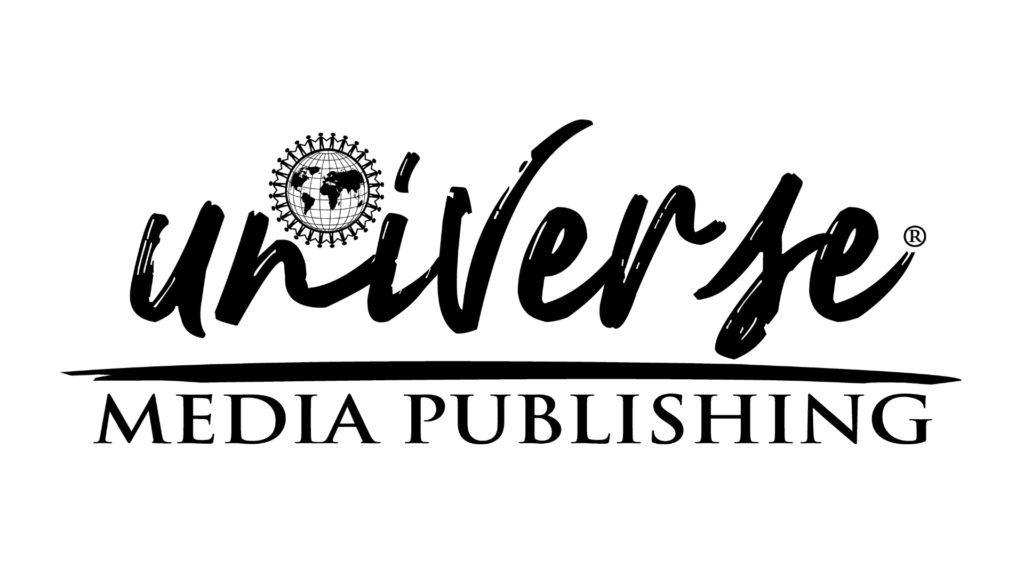
Key Takeaways
Strategic Framework: A well-crafted topical map serves as a strategic framework for your content, guiding you in creating high-quality, relevant material that boosts both SEO and topical authority.
Query Research: Understanding the questions and search terms your audience uses is crucial. Incorporating query research into your topical map ensures that your content aligns with actual user intent, making it more valuable and relevant.
Link Building: Effective link-building strategies, such as guest posting and influencer outreach, can significantly amplify your topical authority. Quality backlinks not only improve SEO rankings but also enhance credibility and trust.

Introduction: The Power of Topical Maps Unlocked
Ever wondered how some websites seem to dominate search engine rankings?
The secret often lies in their mastery of topical maps.
These are not your average site maps; they’re strategic roadmaps that guide the creation and organization of content around a central topic.
By doing so, they help you build topical authority—a key factor that search engines love.
This article will dive deep into the world of topical maps, showing you how to use them to boost your SEO, increase organic traffic, and even ramp up sales.
So, let’s unlock the power of topical maps and take your website to the next level!
What is a Topical Map?
A topical map is a strategic plan that outlines how to create and organize content around a central topic.
It helps in building topical authority, which is crucial for improving SEO rankings and driving organic traffic to your website.
The Connection Between Topical Authority and SEO
How Topical Authority Impacts SEO Ranking
Topical authority is a game-changer in the world of SEO.
It’s not just about sprinkling keywords throughout your content anymore; it’s about creating a cohesive cluster of information that establishes you as an authority in your niche.
This is where the need to create a topical map comes into play.
A topical map helps you organize your content around a specific topic, ensuring topical relevance.
It starts with keyword research, often using tools like Ahrefs to identify a list of keywords and related queries that you need to cover.
Once you have this list, you can use a topical map service to organize these keywords into a logical site structure.
This helps search engines understand the semantic relationships between your pieces of content, boosting your visibility on the SERPs (Search Engine Results Pages).
Achieving topical authority requires a multi-faceted approach.
First, you need to create content that aligns with the search intent of your target audience.
This involves content writing that answers specific questions, solves problems, or provides valuable insights on a given topic.
Internal linking between this content helps build topical relevance and guides the user through a journey that makes them trust you as an authority in your specific niche.
Backlinks also play a crucial role.
The more high-quality backlinks you have pointing to your content, the more search engines will view you as an authority on the topic.
This is where a semantic SEO strategy comes into play, helping you identify related entities and search queries that can be incorporated into your existing content.
People also ask boxes and related queries on the SERP are gold mines for understanding what additional topics or sub-topics you need to include in your content creation strategy.
Tools like Ahrefs can help you dig deeper into these related areas, ensuring that you’re covering all bases.
A topical authority strategy involves a well-thought-out topical map, comprehensive keyword research, strategic content creation, and a robust internal linking and backlink strategy.
By focusing on these elements, you can achieve topical authority, making you the go-to source for information and boosting your rankings in the SERPs.
The Importance of Semantic SEO in Building Topical Authority
When it comes to building topical authority, semantic SEO is a cornerstone. In simple terms, topical authority is a semantic SEO concept that focuses on establishing your site as an authority for a given topic.
This is where a topical map for SEO becomes invaluable.
A topical map service for SEO can help you create the topical map that serves as the backbone of your SEO campaign.
Semantic SEO goes beyond traditional keyword optimization.
It’s about understanding the relationships between topics and keywords, and how they connect to form a cohesive narrative.
This is crucial for gaining topical authority.
A well-crafted topical map provides a visual representation, often resembling a mind map, of how various topics relate to each other. This is one of the best strategies for ensuring topical coverage that resonates with both search engines and users.
If you’re new to this, many SEO courses offer modules on semantic SEO and topical map creation.
These courses often come recommended by SEO agencies, which understand the importance of this aspect of SEO.
They know that a website’s topical authority is not just about domain authority; it’s about being the go-to authority in any niche.
SEO titles and content need to be crafted with semantic SEO in mind.
This is one of the best SEO practices that can significantly improve your SEO performance.
SEO tools like keyword planners can help you generate a list of topics and related keywords, but a topical map takes it a step further by organizing these elements in a way that makes sense to search engines.
So, welcome to my topical guide on why semantic SEO is essential.
Use topical authority as a metric to measure the effectiveness of your SEO efforts.
When you focus on building topical authority in your niche, you’re also building your website’s credibility, which is key for increasing visibility and driving organic traffic.
Semantic SEO is not just an SEO concept; it’s a necessity for anyone who wants to be an authority in their field.
By understanding and implementing a topical map into your SEO strategy, you’re taking a significant step toward establishing your site as an authority, thereby boosting your visibility and driving success.
How to Create a Topical Content Map
Step-by-Step Guide to Creating Topical Maps
Creating a topical map is a crucial step in building topical authority and improving your SEO and content strategy.
A topical map is designed to help you organize your content around a central topic you want to become an authority on.
Here’s a step-by-step guide to help you create one.
Step 1: Identify the Central Topic
The first step is to identify the central topic you want to focus on. This is the subject matter you want to become an authority in. Topical authority refers to your expertise and credibility in a specific area, so choose wisely.
Step 2: Conduct Keyword Research
Use SEO tools to conduct keyword research around your central topic. This will give you a list of related keywords and phrases that people are searching for. These keywords will serve as the sub-topics in your topical map.
Step 3: Create Sub-Topics
Based on your keyword research, create sub-topics that are relevant to your central topic. These sub-topics will form the branches of your topical map and help you also build topical relevance.
Step 4: Organize the Structure
Now that you have your central topic and sub-topics, it’s time to organize them in a logical structure. Topical maps are designed to be hierarchical, with the central topic at the top and sub-topics branching out from it.
Step 5: Add Supporting Content Ideas
For each sub-topic, brainstorm ideas for supporting content. These could be blog posts, videos, infographics, or any other type of content that will provide value to your audience.
Step 6: Prioritize and Plan
Once your topical map is complete, prioritize the sub-topics and supporting content ideas based on their relevance and search volume. Create a content calendar to plan out when each piece will be created and published.
Step 7: Execute and Update
Start creating content based on your topical map and content calendar. As you publish new content, update your topical map to reflect any new sub-topics or supporting content ideas.
By following these steps, you’ll create a topical map that not only helps you organize your content but also builds your topical authority.
This is a dynamic tool, so make sure to update it regularly as you create new content and identify new sub-topics.
Topics and Sub-Topics: The Building Blocks of a Topical Map
How to Identify Relevant Topics and Sub-Topics for Your Content Plan
When it comes to creating a topical map, the selection of topics and sub-topics is crucial. These are the building blocks that will form the foundation of your content plan.
But how do you go about identifying which topics and sub-topics are most relevant for your audience? Here’s a guide to help you through the process.
Step 1: Understand Your Audience
Before diving into topic selection, it’s essential to have a clear understanding of your target audience. What are their interests, pain points, and questions? Knowing this will help you tailor your topics to meet their needs.
Step 2: Conduct Market Research
Use tools like surveys, social media polls, and competitor analysis to gather data on what topics are trending in your niche. This will give you a broader view of what your audience is interested in and help you identify potential topics that you may not have considered.
Step 3: Perform Keyword Research
Keyword research is a staple in any content planning process. Use SEO tools to find keywords related to your central topic. The keywords with high search volume are potential topics, and those with lower search volume can serve as sub-topics.
Step 4: Analyze Existing Content
Take a look at your existing content. Are there gaps that need to be filled? Maybe you’ve covered a topic broadly but haven’t delved into specific sub-topics. This is a good opportunity to expand your content and make your topical map more comprehensive.
Step 5: Use Topic Clustering
Topic clustering involves grouping related topics and sub-topics. This not only helps in organizing your topical map but also improves the user experience by providing a logical flow of content.
Step 6: Validate Your Choices
Before finalizing your list of topics and sub-topics, validate them by checking current trends and audience engagement.
Are people talking about these topics on social media?
Are they searching for them online?
Validation ensures that your content plan is aligned with current interests.
By following these steps, you’ll be able to identify relevant topics and sub-topics that resonate with your audience.
These will serve as the building blocks of your topical map, setting the stage for a robust and effective content plan.

Ready to increase sales through organic search traffic?
It's time to unlock your ultimate success with informative, SEO-rich articles that elevate your brand as the industry authority!
Contact us now to get started.

How a Topical Map Fuels Your Content Plan
The Role of Query Research in Your Content Plan
A topical map is more than just a visual representation of your content strategy; it’s the fuel that drives your entire content plan.
By having a well-structured topical map, you can streamline your content creation process, ensuring that each piece of content serves a specific purpose and fits into the larger picture.
But how does query research fit into all of this? Let’s dive in.
Query Research: The Unsung Hero
Query research is the process of identifying the questions and search terms that your target audience is using online.
This is a critical step because it helps you understand what information people are actively seeking.
Knowing this allows you to tailor your content to meet these specific needs, making your content plan more effective.
Integrating Query Research into Your Topical Map
Once you’ve conducted query research, the next step is to integrate these queries into your topical map.
Each query can serve as a potential sub-topic or even inspire a new branch of topics.
By doing this, you ensure that your content plan is aligned with actual user intent, making your content more valuable and relevant.
The Benefits of a Query-Driven Content Plan
- Increased Relevance: Content that answers specific queries is more likely to be considered relevant by both your audience and search engines.
- Higher Engagement: When you answer the questions your audience is asking, you increase the likelihood of higher engagement rates, including shares, likes, and comments.
- Improved SEO: Search engines love content that answers specific queries. By incorporating these into your topical map, you’re more likely to rank higher in search results.
- Content Efficiency: With a query-driven topical map, you can produce content more efficiently, knowing that each piece serves a specific purpose and fills a particular gap in your overall strategy.
A topical map serves as the backbone of your content plan, and query research is the muscle that makes it move.
By integrating query research into your topical map, you’re setting the stage for a more effective, relevant, and successful content strategy.
How to Build Topical Authority Through Content
Strategies to Increase Topical Authority
Building topical authority is not an overnight process; it requires a well-thought-out strategy and consistent effort.
Your content plays a pivotal role in establishing you as an authority in your niche.
Here are some strategies to help you increase your topical authority through content.
1. Create High-Quality, In-Depth Content
The first step in building topical authority is to produce high-quality, in-depth content that provides real value to your audience. This means going beyond surface-level information and diving deep into the subject matter. The more comprehensive your content, the more likely you are to be seen as an authority.
2. Use Credible Sources
Backing up your content with data and citing credible sources not only adds weight to your arguments but also boosts your credibility. This is crucial for establishing trust with your audience and search engines alike.
3. Update Content Regularly
Topical authority is not a ‘set it and forget it’ asset. You need to keep your content updated to reflect the latest information and trends. This shows that you’re actively engaged in your field and committed to providing up-to-date value.
4. Engage with Your Audience
Don’t just publish content and walk away. Engage with your audience through comments, social media, and forums. Answer their questions, solve their problems, and provide additional resources. This interaction not only builds trust but also gives you insights into what your audience is interested in, helping you refine your future content.
5. Leverage Social Proof
Showcase testimonials, reviews, and endorsements to build social proof. When others vouch for your expertise, it strengthens your topical authority.
6. Collaborate with Influencers
Partnering with influencers in your niche can give your topical authority a significant boost. Their endorsement provides social proof and exposes your content to a broader audience.
7. Monitor and Measure
Use analytics tools to monitor key performance indicators like engagement rates, time spent on a page, and bounce rates. This data will help you understand what’s working and what needs improvement.
By implementing these strategies, you’ll be well on your way to building topical authority.
Remember, authority is earned through consistent quality and engagement, so keep at it and watch your influence grow.
Organic Traffic: The Byproduct of a Strong Topical Map
How Topical Maps Boost Organic Traffic
One of the most rewarding outcomes of having a well-crafted topical map is the boost in organic traffic to your website.
But how exactly does a topical map contribute to this? Let’s break it down.
1. Improved SEO Rankings
A topical map helps you create content that’s not just high-quality but also highly relevant to your target audience. Search engines love relevance, and when you consistently produce content that meets this criterion, you’re more likely to rank higher in search results. Higher rankings naturally lead to more organic traffic.
2. Enhanced User Experience
A topical map ensures that your content is organized in a logical and user-friendly manner. When visitors find it easy to navigate your site and locate the information they’re looking for, they’re more likely to stay longer and explore more pages. This reduced bounce rate is a positive signal to search engines, which can further boost your rankings.
3. Increased Topical Authority
As you build topical authority, you become the go-to source for information in your niche. This not only attracts more organic traffic but also makes it more likely that other reputable sites will link to you, further increasing your traffic and rankings.
4. Content Interlinking
A well-planned topical map facilitates effective internal linking between related articles and topics. This helps in distributing page authority throughout your site, making it easier for search engines to crawl and index your content. The result? Better visibility and more organic traffic.
5. Targeting Long-Tail Keywords
Your topical map will likely include sub-topics and queries that are long-tail keywords. These are easier to rank for and can drive highly targeted traffic to your site.
6. Meeting Search Intent
By incorporating query research into your topical map, you ensure that your content aligns with what people are searching for. Meeting user search intent is a critical factor in SEO and can significantly drive up organic traffic.
A strong topical map is a powerful tool for boosting organic traffic. It helps you create relevant, authoritative content that both search engines and users love, leading to higher rankings and, ultimately, more visits to your site.
Link Building: The Secret Sauce in Building Topical Authority
Effective Link-Building Strategies for Topical Authority
While content is king in the realm of topical authority, link-building is the secret sauce that can amplify your efforts.
Links from reputable websites not only boost your site’s credibility but also significantly impact your SEO rankings.
Here are some effective link-building strategies to bolster your topical authority.
1. Guest Posting
One of the most tried-and-true methods of link building is guest posting on reputable websites in your niche. This not only gets you a quality backlink but also exposes your content to a broader audience, enhancing your topical authority.
2. Skyscraper Technique
This involves finding high-performing content in your niche, creating something even better, and then reaching out to websites that link to the original content. The idea is to offer your improved version as a more valuable resource, encouraging them to link to you instead.
3. Resource Pages
Many websites have resource pages that link to valuable content in a particular niche. Reach out to these sites and make a case for why your content should be included. If it genuinely adds value, you’ll likely earn a backlink.
4. Broken Link Building
This strategy involves finding broken links on other websites and offering your content as a replacement. Site owners are usually grateful for the heads-up and are more inclined to link back to you.
5. Social Media Sharing
While social media links are generally considered “no-follow” and may not directly impact SEO, the visibility and engagement they bring can indirectly benefit your topical authority. The more your content is shared, the higher the chances of it being picked up and linked to by other websites.
6. Influencer Outreach
Engaging with influencers in your niche can be a quick way to gain high-quality backlinks. A single mention from a trusted influencer can significantly boost your topical authority and drive targeted traffic to your site.
7. Monitor and Analyze
Always keep an eye on your backlink profile. Use tools to track the quality of your backlinks and how they’re affecting your topical authority and SEO rankings.
By employing these link-building strategies, you’re adding a powerful component to your topical authority toolkit. Remember, the quality of your backlinks is just as important as quantity, so focus on earning links from reputable sources.
Case Studies: Topical Maps and Their Impact on SEO and Sales
When it comes to understanding the real-world impact of topical maps on SEO and sales, nothing speaks louder than actual case studies.
Let’s take a look at a couple of examples that demonstrate the power of a well-executed topical map strategy.
Case Study 1: E-commerce Website Boosts Organic Traffic by 200%
An e-commerce website specializing in outdoor gear decided to revamp its content strategy by implementing a topical map. They focused on creating clusters of content around key topics like “camping essentials,” “hiking gear,” and “outdoor survival tips.” Within three months, the site saw a 200% increase in organic traffic and a 50% boost in sales. The topical map helped them rank for hundreds of new long-tail keywords, driving highly targeted traffic to their product pages.
Case Study 2: Health Blog Gains Topical Authority in Six Months
A health and wellness blog wanted to establish itself as an authority on “holistic living.” They created a topical map that included sub-topics like “natural remedies,” “mindfulness,” and “organic diets.” They also invested in high-quality backlinks and consistently updated their content. Within six months, the blog was ranking on the first page of Google for several high-volume keywords. Their topical authority led to collaborations with industry influencers, further boosting their credibility and sales.
Case Study 3: Local Business Dominates Local SEO
A local pet grooming service used a topical map to focus on topics relevant to pet owners in their area, such as “dog grooming tips,” “pet health,” and “local pet events.” They also optimized their Google My Business listing and collected customer reviews. As a result, they dominated local SEO rankings and saw a 30% increase in foot traffic.
These case studies clearly show that a well-planned topical map can have a significant impact on both SEO and sales.
By focusing on relevant topics and sub-topics, optimizing for SEO, and building topical authority, businesses across different industries were able to achieve remarkable results.
Conclusion: Your Roadmap to Building Topical Authority
As we’ve journeyed through the intricacies of topical maps, their role in SEO, and their impact on sales, one thing is abundantly clear: a well-crafted topical map is your roadmap to building topical authority.
It’s not just a one-time exercise but an ongoing strategy that evolves with your content, audience, and industry trends.
Firstly, remember that a topical map is more than just a list of keywords or topics. It’s a strategic framework that guides your content creation, helping you focus on what truly matters to your audience.
By aligning your content with specific topics and sub-topics, you’re not just improving your SEO; you’re also building a brand that people trust.
Secondly, don’t underestimate the power of query research. Knowing what your audience is searching for allows you to tailor your content to meet those specific needs.
This not only boosts your SEO rankings but also makes your content more valuable to your readers, enhancing your topical authority.
Thirdly, link-building is the secret sauce that can amplify your topical authority.
From guest posting to influencer outreach, effective link-building strategies can significantly boost your credibility and SEO rankings. But remember, quality trumps quantity.
Focus on earning high-quality backlinks that add value to your content and audience.
Lastly, always measure and adapt.
Use analytics tools to monitor key performance indicators like organic traffic, engagement rates, and SEO rankings.
This data will help you understand what’s working and what needs fine-tuning.
Building topical authority is a marathon, not a sprint. It requires a well-thought-out strategy, consistent effort, and a focus on providing real value.
Your topical map is the tool that will guide you through this journey, helping you navigate the ever-changing landscape of SEO and consumer needs.

Ready to skyrocket you business with killer copy?
Transform your brand's story into compelling content with expertly crafted articles, books, and copy that convert. Take action now!
Contact us now to get started.
